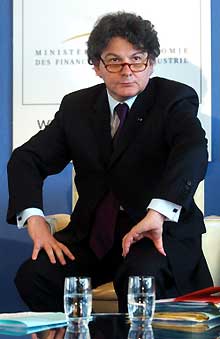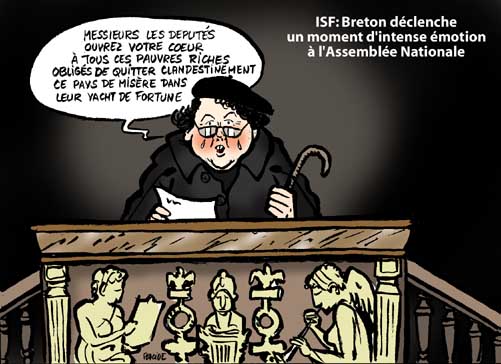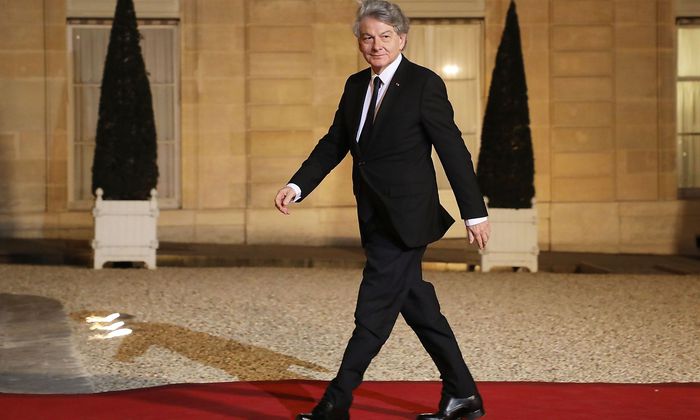

The new boss at Bercy strikes a hawkish pose.
Breton's economic policy focused on the need to reform public finances, specifically to reduce the national debt.
"Breton's economic policy focused on the need to reform public finances, specifically to reduce the national debt."At the end of 2005 France's deficit fell to 2.9% of its GDP after three consecutive years of surpassing the figure of 3%. In 2006 the public deficit was further reduced to 2.5% and public debt was recorded to have dramatically fallen to 63.9% of GDP. For the first time since 1995 the country's budget was in a situation of primary surplus.
Although Breton gained some acclaim for his efforts in tackling the national debt situation, the general perception of him was as a pro-business advocate of ultra-liberal reforms for the benefit of the few rather than the many.
"Although Breton gained some acclaim for his efforts in tackling the national debt situation, the general perception of him was as a pro-business advocate of ultra-liberal reforms for the benefit of the few rather than the many."For example, in an interview with Le Figaro, Breton criticised France's wealth tax, "l'impôt de solidarité sur la fortune" (ISF) stating that it had become "no longer a wealth tax, but simply yet another tax on the savings and housing of our fellow citizens, who are by no means all wealthy". For Breton, it was a "costly" and "economically dangerous" tax.
A cartoon from this period pokes fun at his stance on the ISF by referring to the "intense emotion" generated in the National Assembly with a plea to the parliamentary deputies to open their hearts to "all those poor wealthy people who are obliged to leave this country of misery in a clandestine manner in their luxury yachts…"

Breton generates intense emotion with a plea to parliamentary deputies to open their hearts to "all those poor wealthy people ... obliged to flee France in their luxury yachts".

The Minister for Funny Walks preparing to return to the greener pastures of the private sector